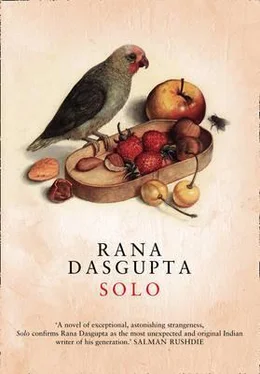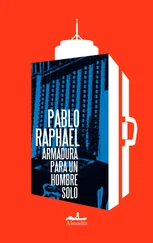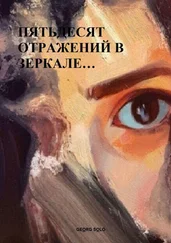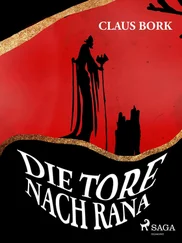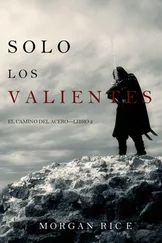Another person who seemed to do well was the mayor. He was an exuberant character who was appreciated as much for his dancing and his erotic novels as for his political opinions, and he had been a well-loved fixture for many years. But behind his jovial façade he evidently had operations that no one surmised, for even in this dark era he had managed to buy himself a new villa by the Black Sea. So when it was time for his daughter to marry, everyone looked forward to an extravagant feast at which to drink away their privations.
Boris was seven years old. On the morning of the wedding, Stoyana took him to the mayor’s house to wait with the bridal party, where he sat uncomfortably in his new suit and observed the goings-on. Two girls, hardly older than he, ran around with some unaccountable glee. The mayor, dressed up like a battleship coming into port, banged repeatedly on his daughter’s door, Fifteen minutes! Ten minutes! , while his wife packed bottles of rakia into a box for the party later, weeping all the time and mopping her nose.
The bride’s door opened a crack, the bridesmaid’s head peeking through it, mouthing some secret need to another woman outside; behind them was a glimpse of the bride in the mirror, not fully dressed.
A rooster scrabbled in a crate in the corner. Boris knelt by it, his only ally. Its wings were tied and it seemed enraged. Boris put his head close. Its eyes were stupid, with only a dot of presence. He took the bird’s beak in his teeth and held it stiffly closed, eye to twitching orange eye, until its stifled struggling pulled it free.
An old lady said,
‘I will bring roses for all the guests!’
She grinned at the ceiling.
‘The flowers are arranged, Mother. We’ve already talked about this.’
Boris wondered what you might carry so many roses in. A wheelbarrow? Perhaps you would need a whole truck? But if there were that many, the ones at the bottom—
‘They are coming! They are here!’
The girls ran to open the window and the music came in from down the road. Boris heard it and ran too. What sounds! Somebody played clarinet like a painted spinning-top tripping and skipping on the uneven ground of the beating tapan, with kaval and violin leaping overhead. They have brought Petko Spassov to play at the wedding! He began to dance like a seven-year-old at the window as the musicians turned the corner and the sounds became louder: he could see the party approaching down below, the bridegroom looking even glummer than usual because of his shaved head, and Petko Spassov himself with black flowing hair holding high his clarinet as he walked.
The mayor banged again at the door.
‘They’re already here! What’s going on?’
Slowly, the door opened. Out came his daughter, stooped, her face behind a veil. The room went limp.
‘Oh, my darling girl!’
The mayor looked at her tearfully, his urgency forgotten. He kissed her on the head through the gauze.
‘What a day, what a day!’ he said.
His wife rushed out of the kitchen, shaking dry her hands, and her tears flowed again at the sight of her daughter in white. The two girls smashed a glass thing with their running round the house.
The bridegroom’s party arrived at the foot of the apartment block. There was already a crowd outside, listening and laughing, and the music continued, loud and muffled, up the staircase, the tapan still banging though there was little room for it around the corners. The mayor and his family could hear people opening their doors and clapping on the floors below, while they had fallen silent and stood transfixed by their own front door, shut solid in its frame. The music ascended slowly: there was a long way to climb, and those who played wind instruments blew less vigorously. Then they could hear the crowd on the landing outside, and the music finished, and there were three loud knocks on the door. The mayor began an argument with the party outside, winking at his family with each witticism, Begone with you! Unless you’re a millionaire! She won’t go for less! , with so much laughter, and Boris wishing he were not shut up in this crush.
‘He’s not only rich, he’s handsome. Open the door and see for yourself!’
The mayor opened the door a crack and Boris forced his face and shoulders through the legs, through the door and out into the crowded stairwell.
The musicians waited a few steps down, big Petko Spassov sweating and panting from his climb and the man on the tapan smoking a cigarette.
The violin was held easily like a giant would hold a woman, looking like music already, and deeply wood. Boris stared at it with longing.
‘Can I hold it?’ he asked.
The man frowned.
‘I don’t think so, boy. If anyone’s going to break it, it should be me.’
Boris clasped his hands behind his back and stared avidly. The strings were like silver electricity lines arching between pylons, and the sky behind.
‘It looks old.’
‘A hundred years. Look here. Mihály Reményi, Budapest, 1909 . The best violins were made there.’
‘What’s your name?’
‘I’m Slavo.’ He laughed. ‘This is Petko Spassov, the famous clarinettist.’
‘I know! I knew who you were as soon as I heard you from the window!’
Boris sang the rushing clarinet line from a cassette someone had made of a Petko Spassov concert. His grandmother loved music, and played these things all the time in the house. The musicians laughed, and Slavo joined in lightly on the violin, his bow bouncing on the strings, Petko clapping and bear-dancing on the spot — but quietly so as not to disturb the merriment of the wedding crowd above: their mock, their hoots, their disputation. The rooster crowed through the middle of it all. Boris finished. Slavo said,
‘You sing well. What’s your name, boy?’
‘Boris.’
The tapan player threw his cigarette butt on to the concrete.
‘Come on. Let’s go down.’
They set off down the stairs with their instruments, and Boris followed, saying,
‘I can sing the whole concert if you like!’
It was a sunny morning. The mayor’s Lada was polished and decorated with roses. A few people were waiting for the wedding party to come down. Boris sang more tunes to impress the big musicians.
‘Shouldn’t you be upstairs with the wedding?’
‘I want to stay with you.’
‘He is one of us,’ said Slavo the violinist.
A cart came up the hill, piled high with hay, and Boris read Yamaha from the barrel of Petko’s clarinet. Birds soared high. The yellow cloud rose from the chemical plant like a ponderous genie.
The wedding party started to emerge from the building. The tapan player banged out a rhythm which fired Petko’s instrument into the air, followed behind by the soaring kaval. Slavo joined in.
The guests gathered downstairs, with whistles and mirth. Boris hid while they all got into cars. The mayor directed things, six or eight to a vehicle; doors slammed, neighbours threw flowers, there was a great cheer as the bridal Lada started up, and one by one the cars drove away to the town hall. The remaining neighbours returned to their apartments.
Petko stopped playing, mid-phrase, and wiped his mouth, and once again there was just the sound of the street and the birds. Slavo put his instrument in its case. They had sandwiches and beer. Boris sat down with them, meekly.
‘Still here, I see,’ said Slavo to him. ‘Do you want a sandwich?’
Boris shook his head. He watched them eat. He watched how they were: their beards and the way they talked.
‘Does anyone know you’re with us?’ asked Petko.
‘No.’
Boris hummed his own improvisation on an old song, as if he were not aware of it.
Читать дальше
Конец ознакомительного отрывка
Купить книгу
